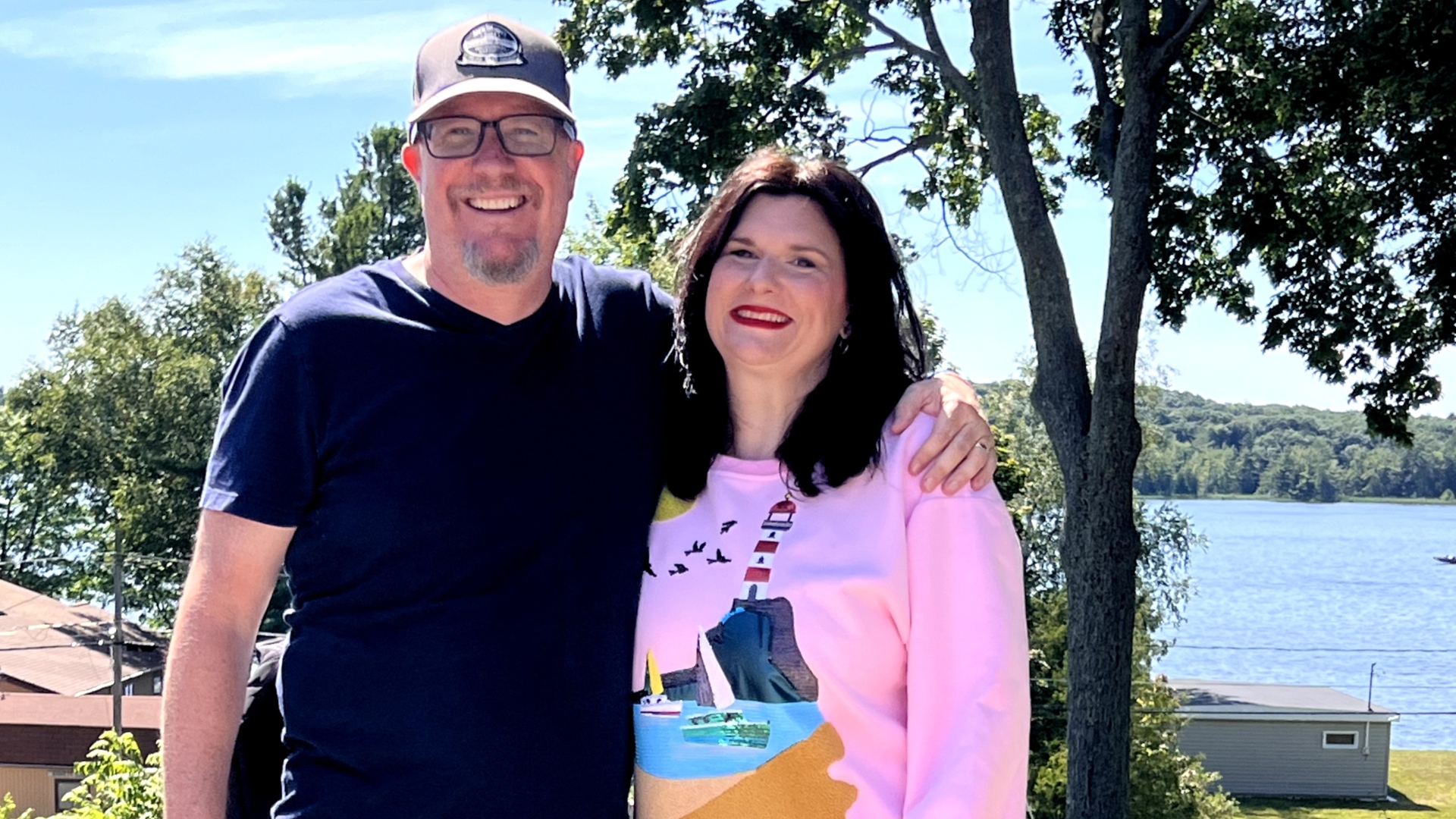
At 44, I became very unexpectedly pregnant. I already had four older children and a new baby wasn’t the plan, but we were excited, nonetheless. Sadly, that pregnancy ended in miscarriage, and that kick-started a host of other issues. Following that loss, I found myself bleeding constantly and feeling miserable physically and emotionally. I wasn’t interested in more children, and I also wanted this never-ending period to stop. Perimenopause had begun, and I wanted to weigh all my options.
First, I tried a progestin-only birth control pill for several months, but it didn’t help. I increased my exercise level, tried a healthier diet, drank more water, and lost 20 pounds. I looked and felt better in other ways, but none of this changed the bleeding.
As the daughter of a uterine cancer survivor, I also had a biopsy to be sure it wasn’t anything serious. Thankfully, that came back clear, but the symptoms remained. The constant changing of pads, sheets, and clothes made me crazy. The bleeding made me so frustrated, angry, and mean, it started to take a toll on my marriage and my children didn’t want to be around me. I was irrational and erratic, and quite frankly, it scared all of us.
After discussing family history and my current physical and mental state, my OBGYN referred me to a minimally invasive gynecological surgeon, or MIGS, to see if I was a candidate for a hysterectomy. This proved to be the best thing that happened to me.
Walking into the MIGS office, I was unsure of what to expect. I was met by a kind doctor who listened to me, presented my options, and suggested the treatment route he believed was most suitable. In the weeks leading up to my surgery, I spent some time looking up other women’s experiences, and a lot of what I read was negative and scary. So, I decided to stop reading. I knew that I had to go through with the hysterectomy for my own well-being. Worrying wouldn’t help.
@colleenandmaurmi Women by far get the raw end of the biological deal. Perimenopause is not for the weak #maurmi #perimenopause ♬ original sound – Colleen and Maurmi
My husband and I arrived at the hospital and were met by a compassionate team who calmed any fears. My doctor performed a total laparoscopic hysterectomy, and my healthy ovaries remained intact. This helped prevent medical menopause. The procedure took about two hours, and I woke up in pain but feeling relieved.
The most difficult part for me was not the pain but the exhaustion that came from the anesthesia. The doctor released me the same day, but I stayed in my bed at home for four days. I was so tired that keeping my eyes open and having a conversation truly became a chore. But I followed the advice of my doctor and stayed ahead of the pain with over-the-counter medication. I opted against the prescribed opioids.
I had two vaginal and two Cesarean births, and for me, the C-section recoveries were so much worse than my hysterectomy. It’s a very different kind of surgery, but I expected to have that kind of pain, and I didn’t. My pain was similar to menstrual cramps but not nearly as intense. I also didn’t realize I would have no discharge, spotting, or bleeding at all after the surgery. Some women do experience these types of symptoms, but for me, it ended completely.
My best advice to anyone considering a hysterectomy is to find a doctor who listens and cares. During my first appointment, my surgeon and I spent a considerable amount of time discussing my family history, personal background, fears, and concerns. He answered my questions and explained everything to me in a way that made me feel both at peace and excited about the future.
I was back to work within a few weeks after my hysterectomy and felt fantastic. I listened to my doctor’s advice and my body during my recovery, and everything went as planned. One of the most important things I learned post-hysterectomy was listening to my body and allowing people to do things for me. As moms, we all know that’s not the easiest thing to do. I am one of those “Let me do it myself” people, but I had to relent to heal.
Thankfully, I have wonderful friends and family who took care of me by providing meals, rides, and helping with household chores. It may not be the way I would have done it, but gratitude and grace go a long way in healing both physically and emotionally.
Don’t be afraid to talk about how you feel. It’s important for those around you to understand what’s happening and to erase this stigma that women are just “crazy” in midlife. We’re not crazy. Our bodies are going through very real and natural changes, but that doesn’t mean we have to be miserable.
Women deserve respect at this stage of life just as much as we did when we were younger and will when we are older. We know our bodies better than anyone. If you need it, find a doctor who wants to get to know you too and help you become the best version of yourself.




